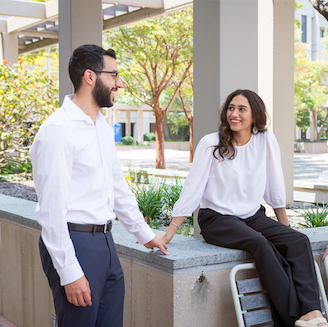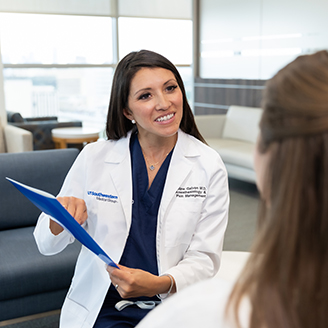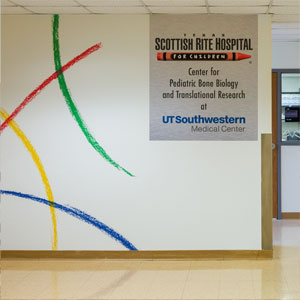Leading Public Health Education at O'Donnell School
The UT Southwestern O'Donnell School of Public Health is built around a simple premise: to engage in rigorous research and outreach that delivers excellence for impact.
We are advancing the nation's health through groundbreaking research and by training a new generation of leaders who can respond to emerging public health needs. Read Full Overview
Degree Programs
Tour Our Campus
Join the OSPH Team
OSPH has grown rapidly and now includes a multidisciplinary team of 128 faculty members (69 primary faculty and 59 secondary appointments) who conduct research and prepare the next generation of professionals to address major public health challenges. The school is poised to grow further in a short period of time. We are currently looking for exemplary faculty and staff to join our team!
Open Rank FacultyAll Open Positions
Meet Our New Faculty

Katherine Kitchens, L.M.S.W., Ph.D., a licensed social worker and community-engaged scholar at the University of Texas Southwestern Medical Center's Peter O'Donnell Jr. School of Public Health, focuses on improving health outcomes in rural and resettled refugee communities. As an Early Impact Faculty Scholar, she leads research initiatives addressing the complex health challenges faced by these populations. Dr. Kitchens' research integrates mixed-methods and community-based approaches to enhance care delivery in charitable clinics and community settings.
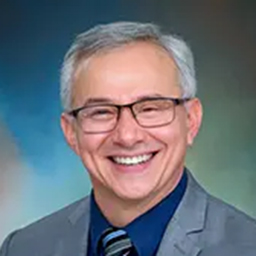
David Lopez, M.S., M.P.H., Dr.PH., joins OSPH as an Associate Professor of Epidemiology, bringing expertise as a cancer epidemiologist focused on health disparities in prostate and hormone-dependent and obesity-related cancers. His research examines how factors such as obesity, metabolic syndrome, and diet influence cancer risk and outcomes, with a particular emphasis on the role of race and ethnicity. Dr. Lopez is actively involved in several professional organizations and serves as Section Editor for Urological Cancers in the American Journal of Men’s Health.

Changwei Li, M.P.H., Ph.D., M.D. is an Associate Professor of Epidemiology in the Peter O’Donnell Jr. School of Public Health at UT Southwestern Medical Center. He earned his Ph.D. in genetic epidemiology from Tulane University in 2015, followed by a one-year postdoctoral training in cardiovascular and kidney disease epidemiology at Tulane. Prior to that, Dr. Li completed his medical training in preventive medicine at Peking University Health Science Center and a residency program in alternative medicine at Beijing Shijitan Hospital. Dr. Li's research focuses on gene-environment interactions in cardiometabolic disease and chronic kidney disease (CKD), providing crucial insights for precision health.

Sarah Messiah, M.P.H., Ph.D. is the Director of the Child and Adolescent Population Health Program and Professor of Pediatrics at UT Southwestern. With extensive expertise in epidemiology and a focus on childhood obesity and cardio metabolic disease, Dr. Messiah is internationally recognized for her work in school-based interventions. As the National Chair of The Obesity Society’s annual planning committee for Obesity Week and a Fellow of the Obesity Society, her leadership is widely respected.
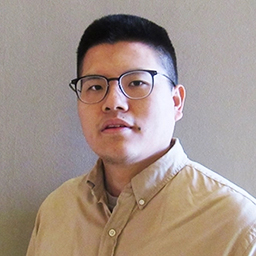
Yingjie Qiu, M.S., Ph.D., joins OSPH as an Assistant Professor in Biostatistics. He holds a Ph.D. in Biostatistics & Health Data Science from Indiana University School of Medicine and Fairbanks School of Public Health. Dr. Qiu’s expertise lies in developing statistical methodologies to address real-world challenges, with a focus on clinical trial designs, missing data analysis, and methods for single-cell and spatial transcriptomics. He has contributed to multiple collaborative projects, publishing significant research in medicine, public health, and biology. Dr. Qiu is dedicated to fostering interdisciplinary collaborations and translating statistical insights to drive clinical decisions and research directions.
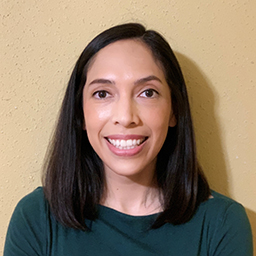
Alejandra Fernandez, M.S., Ph.D. is an Assistant Professor in Social and Behavioral Sciences. Previously, she served as an Assistant Professor in the Department of Health Promotion and Behavioral Sciences at UTHealth Houston. Dr. Fernandez received their Ph.D. in Health Behavior and Health Education from the University of Texas at Austin in 2017. Her research focuses on ecological factors and family functioning related to health outcomes such as substance use and obesity, particularly within Hispanic populations. Dr. Fernandez aims to develop multi-level family-based interventions to improve health outcomes by addressing cultural and societal factors.
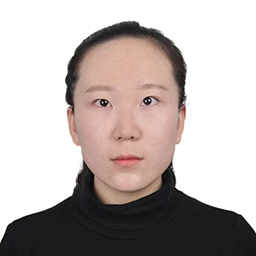
Mingyue Li, M.P.H., Ph.D. is an Instructor in Biostatistics. She brings a comprehensive background in molecular and genetic epidemiology, with a focus on understanding the interplay between genetics, environmental factors, and diseases, particularly cancers. Dr. Li holds a Ph.D. in Epidemiology from Indiana University, with a minor in Bioinformatics, and has experience identifying genetic variants linked to cancer susceptibility and exploring metabolic pathways influencing mitochondrial health. Her role as a research assistant and experience as a Merck Health Economics and Outcome Research Associate have equipped her with skills in handling large datasets and mentoring students.

Samaah Sullivan, M.P.H., Ph.D., joins OSPH as an Assistant Professor in Epidemiology. Previously, she served as an Assistant Professor in the Department of Epidemiology, Human Genetics, and Environmental Sciences at UTHealth Houston. Prior to UTHealth, Dr. Sullivan spent five years at Emory University’s Rollins School of Public Health, first as a postdoctoral fellow on a T32 focused on cardiovascular inequalities and then as an Instructor.
Her research investigates the biological embedding of psychosocial stress and social disadvantage, particularly among women, and has revealed critical sex differences in how stress affects cardiovascular health. Recognized by the American Heart Association and the NIH, Dr. Sullivan's work has also received accolades such as third place in the American Heart Association’s Research Goes Red Data Challenge.

Hui (Henry) Luan, Ph.D., joins the School as an Assistant Professor in Geographic Information Systems (GIS). Previously, he served as an Assistant Professor in spatial epidemiology at the University of Oregon and received his doctoral from the University of Waterloo.
Dr. Luan’s research focuses on using data-driven and computational approaches, including Bayesian spatiotemporal statistics and GIS techniques, to study geographical and racial disparities in HIV. He have successfully secured six grants and their work has been recognized by various organizations, including the American Heart Association and the NIH.

Dr. Luyu (Amber) Xie joins OSPH as an Assistant Professor. She joins us from University of Texas Health Science Center, where she earned her her Ph.D. in Epidemiology with a minor in Biostatistics and her PharmD from the University of Nebraska Medical Center. Her research focuses on utilizing real-world data, including surveys, electronic health records, and claims data, to enhance our understanding of chronic diseases such as asthma, obesity, and cardiovascular conditions.
Dr. Xie has authored numerous peer-reviewed publications, including articles in high-impact journals such as JAMA Pediatrics, JAMA Network Open, and Circulation. She is a member of the Delta Omega Honorary Society in Public Health, the American Heart Association, and the International Society for Pharmacoepidemiology.
Advancing Research
$66M
Total Funding
$37M
NIH Funding
$7M
CPRIT Cancer Funding
$14M
Foundations & Other
Sources
Research Initiatives
- Artificial Intelligence to Identify Cancer
Funded by the National Institutes of Health and the Cancer Prevention and Research Institute of Texas, UT Southwestern researchers have developed a software tool that uses artificial intelligence to recognize cancer cells from digital pathology images – giving clinicians a powerful way of predicting patient outcomes.
- Breast Screening and Patient Navigation Program (BSPAN)
Launched in 2009 with funding from the Cancer Prevention & Research Institute of Texas, the Breast Screening and Patient Navigation (BSPAN) program works with community providers and other local organizations to decrease financial and geographical hurdles that keep women from getting mammograms and timely diagnostic services.
- Colon Cancer Screening
Funded by the National Cancer Institute and the Cancer Prevention and Research Institute of Texas, Colon Cancer Screening is a program that asks patients to mail in stool samples to screen for colon cancer is an effective way to expand screenings to underserved and underinsured communities and offers an alternative to in-person testing during the pandemic, according to a study conducted by UT Southwestern and Parkland Health & Hospital system.
- COVID-19 Prevalence Study
UT Southwestern’s COVID-19 Prevalence Study, in partnership with Texas Health Resources, local organizations, and community leaders, seeks to understand how many people have the virus and why some communities are hit harder than others.
- Dallas Heart Study
The only single-center heart study of its size and multiethnic composition, the Dallas Heart Study is a scientific resource that becomes more valuable each year as the population ages, providing opportunities to learn more about environmental, social, and genetic factors that contribute to health and disease.
- Food Pantries Need to Address Food Insecurity
Food banks should be used more consistently rather than only during emergencies to better address food insecurity and related health issues, a joint study by researchers at UT Southwestern and economists at the University of Dallas shows. The research is funded by multiple foundations and community organizations.
- Population Science and Cancer Control
UT Southwestern’s Simmons Comprehensive Cancer Center’s Population Science and Cancer Control (PS) Program generates research discoveries addressing cancer burden and disparities in our catchment area and beyond. With over $5 million in funding each year from the National Institutes of Health and the Cancer Prevention & Research Institute of Texas, program members conduct research to generate discoveries across the cancer continuum from prevention and early detection, through treatment and survivorship.
- PROSPR Study
Partnering with the Dallas County’s Parkland Health & Hospital System, UT Southwestern’s Simmons Comprehensive Cancer Center researchers are deploying funding from the National Cancer Institute to address challenges of helping individuals complete the cervical and colorectal screening processes. As leaders in this large consortium of researchers, they are setting an agenda nationally for cancer prevention and detection in the neediest of populations.
- Texas Online Population Health Assessment Tool (TOPHAT)
TOPHAT provides access to multiple, interactive, layers of population health statistics, such as morbidity rates and life expectancy. The public can easily assess the health of neighborhoods, cities, towns, and counties for populations defined by race/ethnicity and sex across the state.
Public Health Blog

In the News

UTSW Social Posts
Location



